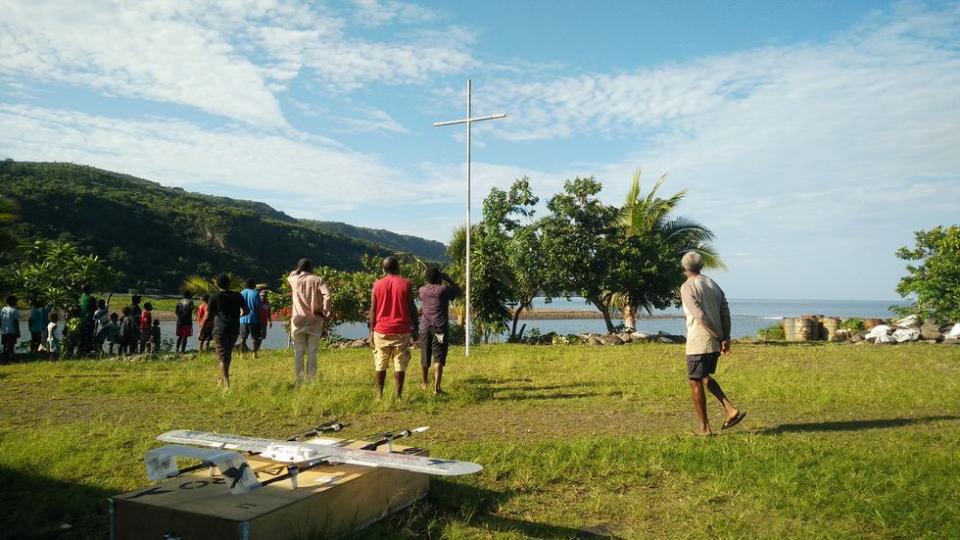Drone-Delivered Vaccines Are Launching a New Era of Health Aid

For the first time ever on Monday, a drone delivered vaccines to a baby in the remote South Pacific island nation of Vanuatu.
One-month-old Joy Nowai is now the first person to be immunized by drugs delivered via commercial drone, thanks to the Australian Swoop Aero, which partnered with UNICEF to orchestrate the delivery. The vaccine-carrying drone is the latest development in a trend that's seen UAVs ferry medical supplies to rural communities in the US, and to parts of Africa. The delivery adds fuel to a growing industry intent using drones to supply medicine to the developing world.
Owing to its remote location and rough geography, Vanuatu is hard to access for medical professionals. The country is composed of 80 islands scattered in the South Pacific, with a limited network of roads connecting the population of roughly 26,000. According to UNICEF, 20 percent of the country's children haven't ever received their vaccine shots, which is why it's only right for UAVs to swoop in.

Using a drone was especially necessary in delivering the drugs to Nowai. She lives on the eastern side of the island in Cook's Bay, a region with no electricity or health center that's only accessible by boat or by traversing the craggy terrain on foot. After the drone landed there, Nowai and 13 other children and five women were vaccinated by a registered nurse.
“Today’s small flight by drone is a big leap for global health,” said Henrietta H. Fore, UNICEF Executive Director. “With the world still struggling to immunize the hardest to reach children, drone technologies can be a game changer for bridging that last mile to reach every child.”
The successful delivery was the conclusion of two trial runs, carried out by Swoop Aero and WingCopter, both of which ferried test payloads in the two weeks prior. Swoop Aero passed the test when it landed within 6-feet of the target area after a 31-mile journey carrying the medical supplies.
Getting a drone to deliver vaccines safely in Vanuatu's warm, tropical climate also posed a dilemma. Since vaccines have to be kept at a certain temperature to ensure their efficacy, the drone was equipped with styrofoam boxes with ice-packs and a temperature logger. An electronic indicator was also attached to the rig, to send an alert if any of the vaccines got too warm.
Henrietta H. Fore, UNICEF Executive Director, said the milestone could provide a blueprint for future vaccines delivered via UAV:
“Today’s first-of-a-kind vaccine delivery has enormous potential not only for Vanuatu, but also for the thousands of children who are missing out on vaccines across the world. This is innovation at its best, and shows how we can unlock the potential of the private sector for the greater good of the world’s children.”
UNICEF says Vanuatu is interested in integrating the drone technology into its national immunization program, which could surely do a lot of good in promoting health in Vanuatu for generations to come.
('You Might Also Like',)

